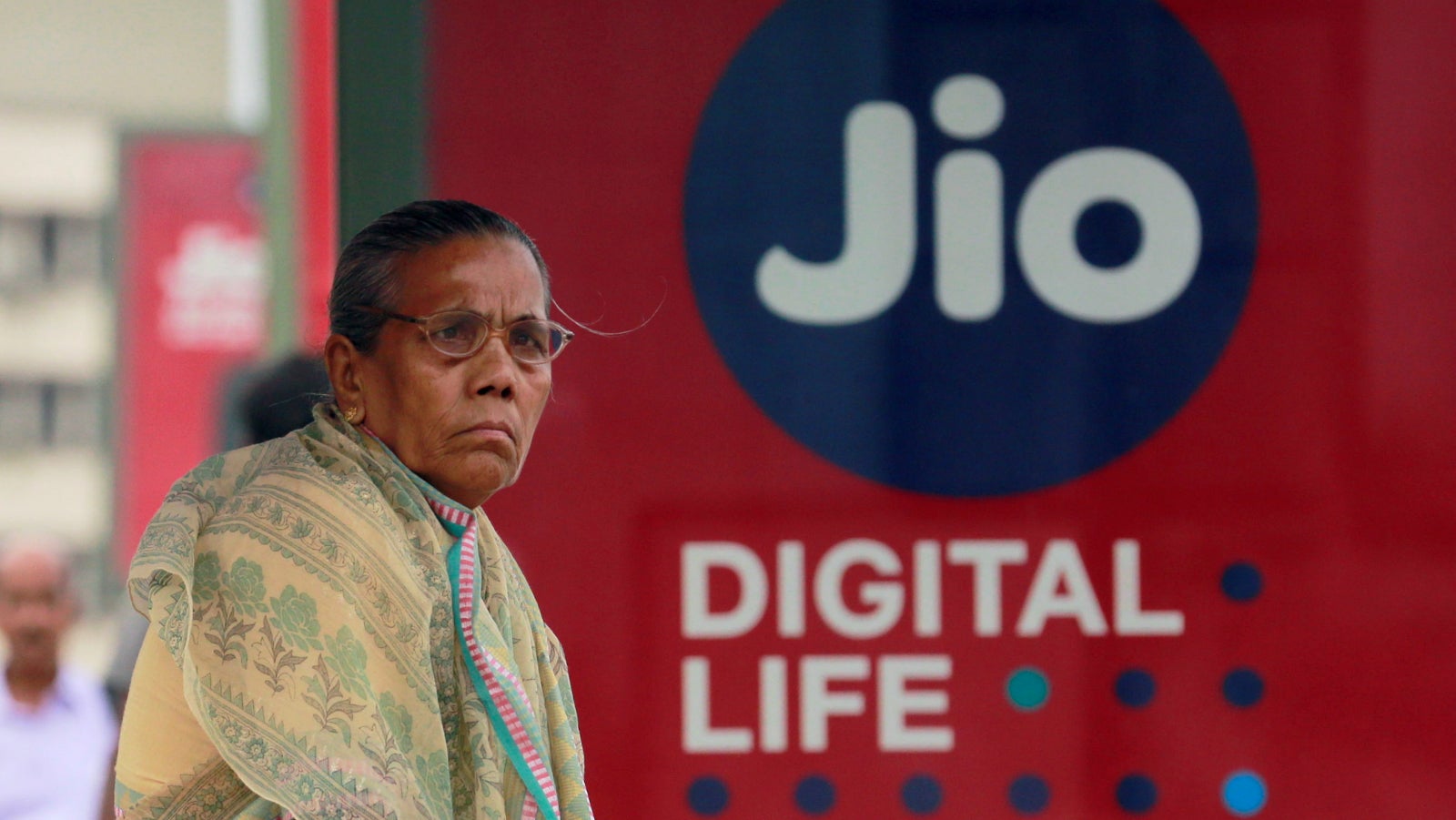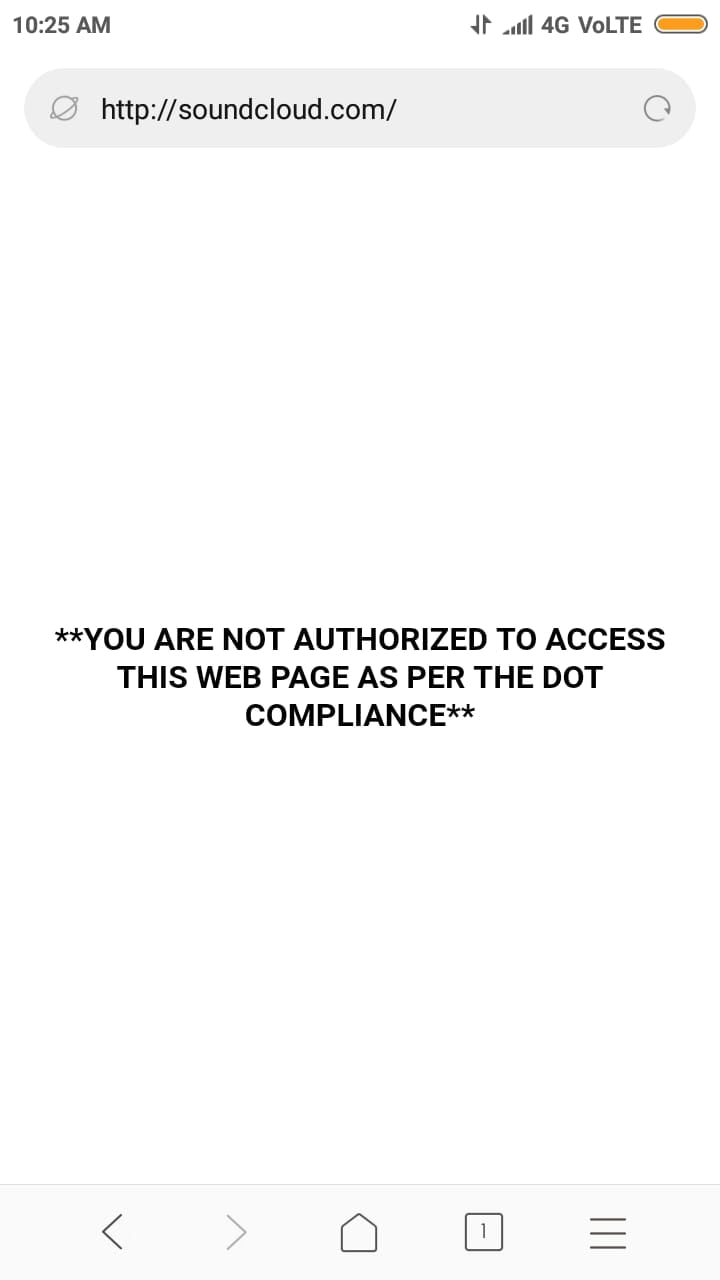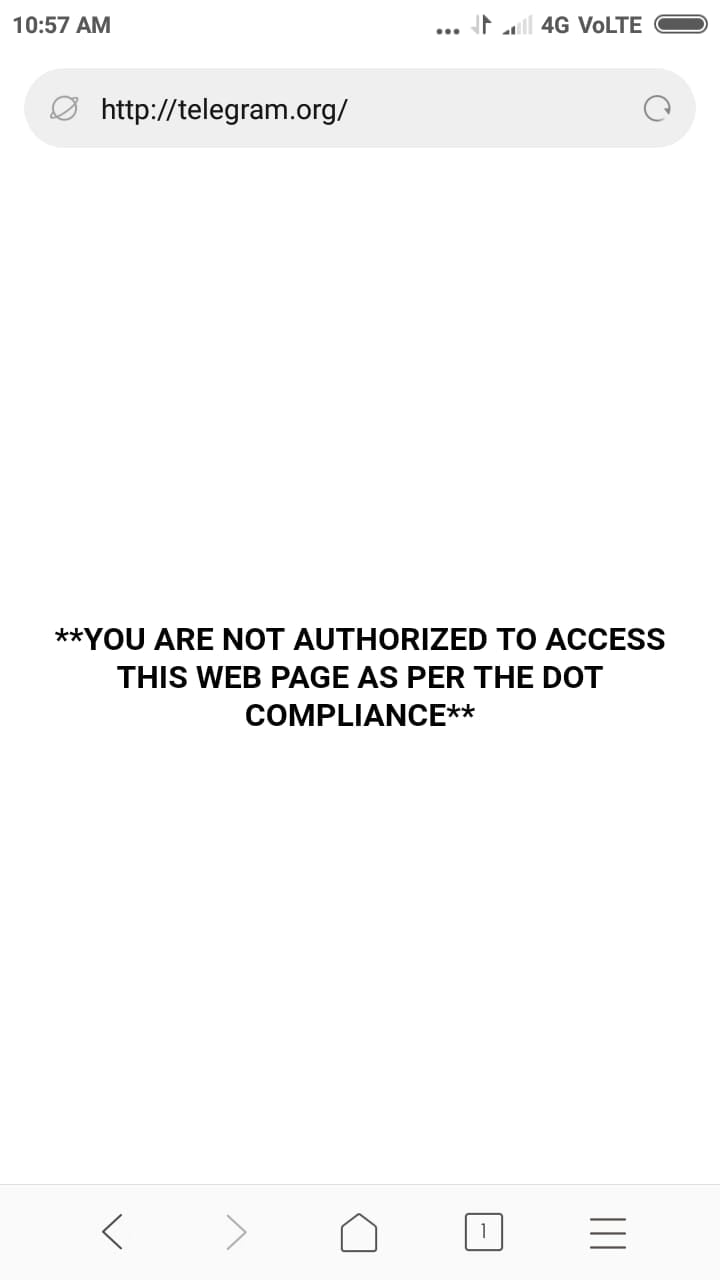Not just porn, Indian telecom firms are blocking other websites, too
Over three months after the Indian government banned hundreds of porn websites, internet users from across the country are reporting blocked access to a wide variety of other online services. These include VPN (virtual private network) and proxy sites, torrent sites, the website for the messaging platform Telegram, and even the audio-streaming site Soundcloud.


Over three months after the Indian government banned hundreds of porn websites, internet users from across the country are reporting blocked access to a wide variety of other online services. These include VPN (virtual private network) and proxy sites, torrent sites, the website for the messaging platform Telegram, and even the audio-streaming site Soundcloud.
Over 130 such complaints have been collated in a list crowdsourced by the Internet Freedom Foundation (IFF), a New Delhi-based advocacy group.
Many of the reports were by people who said they were blocked out of proxy sites and VPNs, something that the telecom firm Reliance Jio was accused of by Indian Reddit users last month. Among other things, proxy sites often allow Indians to navigate bans and access websites barred by the government.
Most of the responses to IFF’s request for reports (around 85 of them) came from Indians using a Jio connection. Over 40 of the other complaints were from Airtel users.
Telcos blocking sites raises concerns over net neutrality: the principle that internet service providers (ISPs) should provide equal access to all internet content.
Nine users reported that Soundcloud, an audio-streaming site, was blocked for them. “Many websites include SoundCloud audio clips as part of their webpages like a YouTube video,” one respondent from Chennai, Tamil Nadu, said. “This censorship affects such websites and is against (the) right to information.”
When Quartz tried accessing Soundcloud through a Jio connection in Delhi, the web page displayed a note saying the user was “not authorised to access” the webpage, in compliance with India’s department of telecommunications (DoT).

Telegram’s web platform, Telegram.org, was also blocked from the same Jio connection.

It is unclear, however, when or why the DoT may have issued a requirement that telcos block Soundcloud, Telegram, or proxy sites, as the government is often not transparent about the details around internet censorship. Disclosures often take place in general, sweeping terms: For example, the telecom minister announced last August that DoT had asked internet service providers (ISPs) to block over 11,000 websites since 2016.
Jio, the DoT, and Airtel did not respond to emailed questionnaires. The piece will be updated as and when any of them respond.
IFF tweeted that, responding to a right to information request submitted by Twitter user @theAvinesh, DoT said that information about the ISP (Jio) blocking the site “is not available” with the central public information officer answering the query.
Last week, Jio officials’ public comments on the government’s proposed plans to police online content revealed its wish for even stricter rules.